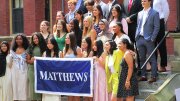When the Harvard College class of 2027 gathered in Tercentenary Theatre on September 3 a year ago, they met a new lineup of leaders: Claudine Gay, the University’s thirtieth president; Hopi Hoekstra, Faculty of Arts and Sciences (FAS) dean, whom Gay had appointed effective a month earlier; and Thomas Dunne, the College’s dean of students, then three months into his job. This magazine’s account was titled “Convocation 2023: The New Crew.” Against the backdrop of such academic issues as the June 2023 Supreme Court decision outlawing consideration of race in undergraduate admissions at Harvard and elsewhere, and the rising importance of artificial intelligence, the cohort of first-year leaders introduced themselves during the convocation and urged the matriculating students to embrace the possibilities of transformative education on offer here. Those messages were reinforced by Rakesh Khurana, the College dean, who urged the entering students to “Live boldly,” and Amanda Claybaugh, dean of undergraduate education, who limned core Harvard values: diversity and academic freedom.
Transformation indeed: speaking in the same venue at the class of 2028 convocation on the lovely, temperate afternoon of September 2, perfect for summer dresses and blazers or suit jackets (with not that many neckties), President Alan M. Garber—officially in that role since August 2 (he was appointed on an interim basis January 2 upon Gay’s resignation)—sought to inspire the undergraduates while navigating continuing campus crises prompted by the internal and political reactions to Middle East war. No newly arrived member of the community could be unaware of the controversies over antisemitism and anti-Muslim, -Arab, and -Palestinian bias, and existential concerns over campus speech and discourse. As the Crimson deftly put it August 28, move-in day:
The class of 2028 began to apply just weeks after the Supreme Court ruled against Harvard to effectively end race-conscious admissions practices, submitted their last applications one day before former University President Claudine Gay’s resignation, and roamed Harvard Yard as admitted students [during Visitas] just 10 days before it became the site of a pro-Palestinian encampment.
The Convocation challenge was to help the entire community, including these 1,650 newest members, focus on its academic aspirations and potential, while underscoring the conditions and behaviors upon which the work of learning, teaching, and research all depend.
In an interview with the Harvard Gazette published August 26, Garber signaled how he would frame the work ahead for the entire community. He acknowledged the divisive, polarized external context (the war and U.S. presidential election) and the resulting “tensions” on campus. Given that reality, he said, “Our biggest challenge is ensuring that the best aspects of our culture are experienced by everyone on our campus. We need to cultivate empathy, learn how to talk to one another, and understand how to listen to people who differ from us.”
Garber’s follow-up emailed missive, on August 29, almost pleaded for everyone to pull together:
We have everything to gain from our commitments to one another—and so much to lose if we falter. Our community includes people of intensity and passion with beliefs both deeply held and strongly expressed. The challenges we faced in the last academic year have not abated. We anticipate demonstrations and protests, as well as disagreement and argument. We expect tension among individuals who hold opposing positions. We will surely be tested again this term.
To anyone who didn’t quite get the message, he wrote, “Those who fall short of our expectation that the rights of others be honored must be prepared to be held accountable for their actions. We reject bias or hate directed at any individual or group, and we will not tolerate harassment, intimidation, or threats.” He closed with the “hope that we will choose to be stronger together than we could ever be apart.” That hope of course pertains to the community’s conduct on campus as members learn, teach, and conduct research. But Garber and others are also keeping a wary eye on critics in Congress and elsewhere who are ready to pillory Harvard anew for protests or other behavior they deem antisemitic or otherwise unacceptable.
As if underscoring the downside of choosing not to be “stronger together,” Meredith Weenick, executive vice president, on August 30 dispatched “Use of Campus Spaces,” a further message on campus speech and the rules surrounding protest(extraordinarily, her second such missive in a month). Her note detailed procedures such as the requirement to produce a Harvard ID when asked by administrators or campus police (nonmembers of the community who engage in campus protests are trespassing on private property, so the ID is both a sorting mechanism for identifying any such outsiders and a way of beginning discipline against community members who violate rules); digital recording of protests; and in cases of “substantial disruption of the normal operations of our campus,” resort to University police to “remove” offenders or “remediate the disruption.”
Such was the fraught backdrop for the formal convocation ceremonies—complete with controlled entry into Harvard Yard, plenty of uniformed University police officers on duty, and discreet fencing between the student audience and the Memorial Church platform.
The Convocation Conversation: “Qualities of Humanity”
After the processional, complete with ringing of the Memorial Church bells, the Rev. Matthew Ichihashi Potts, Pusey Minister and Plummer professor of Christian morals, offered the invocation—giving thanks, as is his custom, “for you,” the students who will be transformed by their Harvard years, and will, in turn, transform the place.
In his remarks, Garber cast the new students in the favorable light that usually prevails on such occasions. The class, he said, “contains multitudes—countless ideas about what these next few years could hold for you—countless identities, ideologies, and interests—passions and pursuits.” They join College upperclassmen and -women and graduate and professional students who are “of many minds about the events unfolding in the wider world, and their diversity of perspective is part of what makes this one the richest learning environments you will ever encounter.”
Partaking of those riches, he hastened to add, “means having rights and responsibilities.” He continued, “Those gathered here have the right to express themselves freely—to dissent and protest. But they also have the responsibility to act with each of you—and the meaning of this occasion—in mind. We are convened to welcome you. Each of you should leave this gathering knowing that you are acknowledged and accepted by our community.” (These remarks may have been a reflection on last year’s convocation, at which student supporters of Palestinians chanted in favor of Palestinian rights during breaks in the proceedings—an indication of the passions and advocacy that would take on a whole new intensity and meaning only a few weeks later, when Hamas attacked Israel on October 7. No such chants rang out this afternoon.)
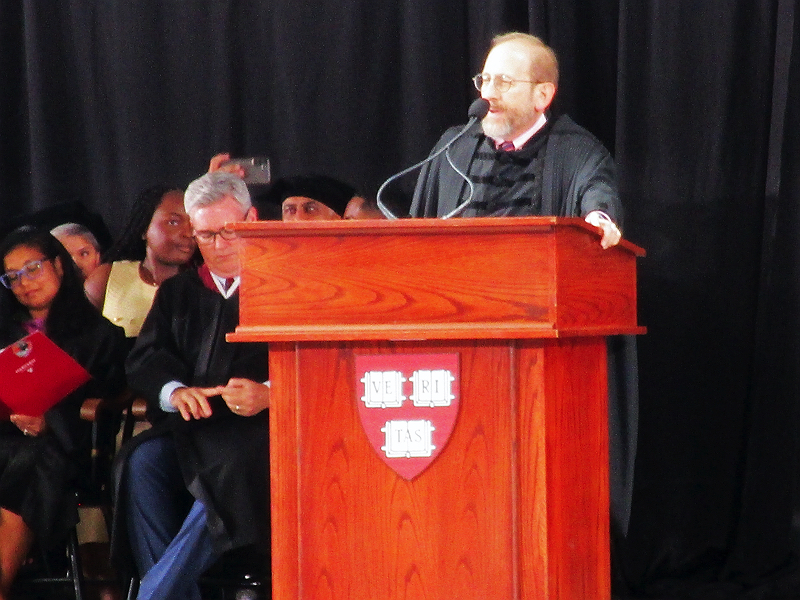
Garber urged the new students to grow in knowledge and wisdom in the classroom, extracurricularly, and in their everyday interactions with one another. He encouraged them to “Be prepared to defend your point of view. Be prepared to articulate points of view that are different from your own. Be prepared, most of all, to change your mind”—taking advantage of a setting in which it is unusually possible to do so. In its pluralism, he said, the University was a place where everyone should be willing to “encounter beliefs that are not our own, to be curious and respectful, to be genuinely attentive despite our tendency to be pulled in a million ways at once.”
He noted that such work “cannot be done well on your phone,” and therefore challenged each student to “arrange to sit outside with a person you don’t know well, pick a place together in advance, and—this part’s essential—leave your phones in your rooms while you get to know each other. Fifteen minutes should be enough time” to “discover quickly the virtue of removing distraction.” Reverting to the newish media, the president asked the youngsters to let him know how those meet-ups went—by sending him an email at president@harvard.edu.
“Learning to focus on another person,” he continued, “to listen sincerely and generously, to cultivate compassion and empathy: these are not indicators of intellectual prowess—they are qualities of humanity. You need both in equal measure if you are to hope to leave Harvard College having done what is expected of you. Open your mind, and your world will expand. Open your heart, and you’ll make lifelong friends.” Invoking the friends he made as a freshman moving into Claverly Hall in 1973, Garber said those friendships were built on the essence of the Harvard experience: excellence predicated on “both/and” rather than “either/or” thinking and achieving.
Summing up, the president said:
We want you to feel supported in focusing on multiple interests and pursuing multiple goals. We want you to feel confident in following hunches and taking risks—and just as confident in changing course as you become more knowledgeable about who you are and what brings you joy and fulfillment.
Your time is precious. If you invest in people and situations that bring out the best in you, you will become a better version of yourself—and your years here will have been very well spent.
Read President Garber’s complete remarks here.
“Intellectual Virtues”
Having announced on August 29 that this academic year would conclude his service as College dean (thus assuring yet another leaderly lineup for the class of 2029’s convocation), Rakesh Khurana followed Garber to the microphone. Reprising past themes on such occasions, he said the members of the class should be proud of the work that had brought them to Harvard—but that it had come time to pivot from the past to the potential of their undergraduate education: the question was not how to “rewind” high school, but “How are you going to engage with this community?” Having been deftly set up by Rev. Pott’s invocation, Khurana outlined the difference between a transactional education (pursuing a set goal, aiming for the best grades and the next credential, regarding college as a “financial investment” en route to a known career) and a transformational one (characterized by intellectual exploration and vitality). In pursuit of the latter—via interesting, if unfamiliar courses, and conversations with “people who are different from you”—Khurana said, Harvard’s faculty would not answer the students’ questions; rather, Harvard would provide opportunities for students to find their own answers about who they are and what they want to be.
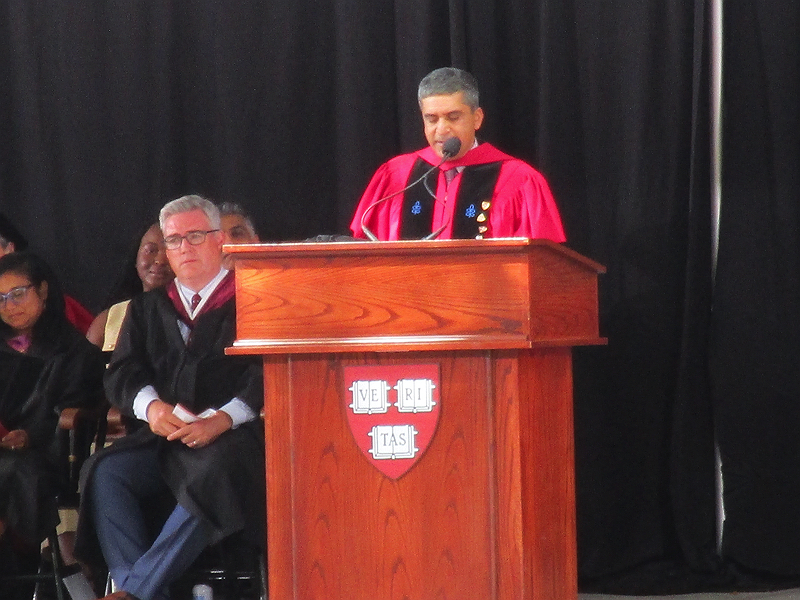
In taking advantage of such opportunities, he observed, “Your fate is intertwined with the fate of everyone else in this community”: a different way of getting at the themes Garber raised. How the students decided to proceed, the dean said, will determine “the success of our shared project.” That project, he continued, is based on three principles. The first is Veritas, the search for truth and the difficult work of pursuing it. The second is the shared responsibility to undertake that pursuit in a decent, civil community. Harvard is “diverse by design,” he said, in support of disagreement “with humility and thoughtfulness and kindness”: the kinds of disagreements that are productive. He implored the students to be civil and kind in all their communications, in person and online (where some of the most vituperative campus exchanges occurred last year). Third, he named responsibility and accountability—but cautioned the students not to “confuse rules with aspirations.”
Invoking Drew Faust, president emerita, Khurana said a transformative education based on these principles would benefit both the students and the University and the wider world, making Harvard not “the best in the world but best for the world.” In that spirit, he concluded, “We have a sacred journey ahead of us.”
Dean of undergraduate education Amanda Claybaugh began her academic address with a Harvard history lesson. She recalled the plaque by Johnston Gate which recounts the Puritan founding of the Massachusetts Bay Colony—and the commitment, in 1636, to secure an uncertain future by educating future leaders. The Puritan vision of education, she noted, was theocratic in purpose, fixed in method (reading from ancient texts), and rigid in schedule (Greek; Hebrew; rhetoric; the catechism; and a schedule of logic, politics, and so on, proceeding to geometry and astronomy).
“Much has changed,” she noted: the introduction of elective courses in 1885, the rise of concentrations in 1914, and the progress toward academic freedom and its guarantees to pursue difficult and unpopular queries and fields. And from strict reliance on ancient texts, she continued, scholars had evolved means of discovery including experimentation, statistical analyses of data, models to predict the future, quantitative and qualitative study of human behavior, and the reading of all texts imaginable, not merely those in a narrow canon. But Harvard’s first mission, “training future leaders,” as she put it, “remains the same”—no longer for the clergy, of course, but for leadership of “pluralistic democracies around the world.”
Much of the moral training for leadership, Claybaugh said, takes place outside the classroom—in dorms and Houses, extracurricular clubs, and so on. But there is also leadership training within the curriculum, via instruction in what she called the “intellectual virtues.” These she described as “capacities that enable the pursuit of truth,” such as curiosity, intellectual courage, and open mindedness. She asked members of the class to summon up their greatest passion or commitment—climate change, abortion, guns, “Ukraine or Gaza”—and, while holding that in mind, also to try to commit to the intellectual virtues. It is hard to do both simultaneously, she said, particularly when one feels certain about a cause. But the Puritans, rigid as their worldview was, had room for advancing knowledge, she said, and “Surely, we don’t want to be more close-minded than they.”
The goal of exercising the intellectual virtues, she continued, is to “strengthen your own positions” by challenging them, becoming better informed, and, ultimately, becoming “a better leader” in advocating for and advancing one’s deepest commitments.
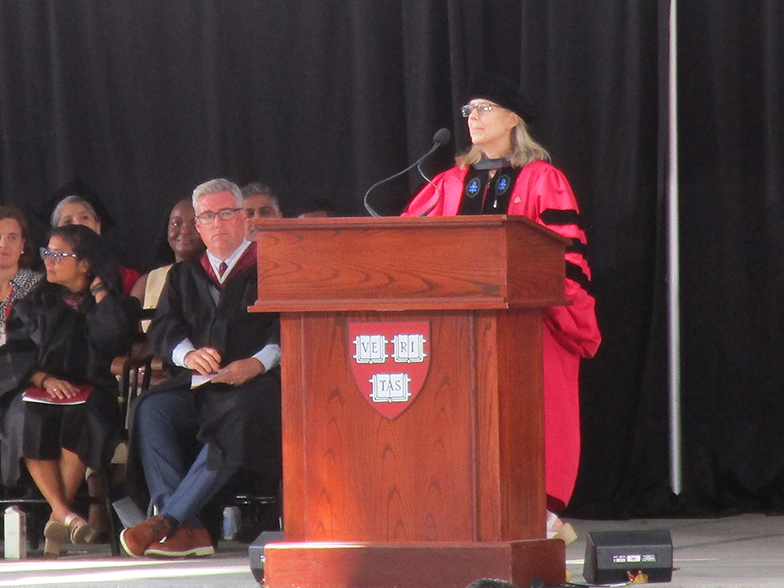
Harvard, Claybaugh maintained, is imperfectly understood as a self-containing bubble. Rather, she sees it as a “courtyard of gates all around,” connecting to the world. Pivoting from Johnston Gate to Dexter, she reminded the students they would, having grown in wisdom, “depart to serve better thy country and thy kind.” She wished for each member of the class exciting classes in which they would engage in “exercising the intellectual virtues”—work in which she would be cheering them on.
Not everything was elevated rhetoric. In keeping with relatively recent Convocation traditions—this is its sixteenth iteration, a mere snap of the fingers by University standards—the Harvard Choruses sang (“Felices Ter,” by Randall Thompson, A.B. 1920, and “Sorida (Welcome),” by Rosephayne Powell), and the Kuumba Singers rocked the Yard. Harvard Undergraduate Association co-presidents Ashley Adirika and Jonathan Haileselassie, both ’26, and Harvard Alumni Association president Moitri Chowdhury Savard ’93, spoke, and the class banner was presented (the class colors are orange and black, a strangely Princetonian combo). Everyone got introduced, or reintroduced, to “Fair Harvard.” Dean Dunne talked about student life, and Nekesa C. Straker, senior assistant dean of residential life and first-year students, did the recognition of the dorms, assisted by the residential deans of first-years.
The Larger Context
In retrospect, none of the concerns about discourse highlighted during the past academic year is wholly new. The fierce controversies over the Middle East erupted against a backdrop of a changed society and students arriving with different assumptions and experiences. Their intersection with University norms and traditions has made the challenges facing academia, and Harvard, more acute.
In the Gazette interview, Garber said, “Nobody should be surprised” if further protests take place, noting that “the right to protest is enshrined in the University-wide Statement on Rights and Responsibilities.” He hastened to emphasize the responsibilities accompanying the exercise of those rights, and the policies governing “expression, protest, and the use of space.” Those guardrails are intended to uphold universities’ role they “seek to illuminate and persuade by drawing on facts and reasoning, not coercion. Coercive tactics lack legitimacy, and they are inimical to the ideals of the University. The same is true of discrimination and exclusion, which should never be tolerated.”
Then, notably, Garber hinted at contemporary students’ backgrounds as they enter college from a society and prior schooling that themselves may have made it increasingly difficult to engage with educational traditions:
Harvard students today have had different educational experiences than those who arrived even a decade ago. They have grown up in an era of increasing polarization, with online connections permeating every aspect of their lives.…We cannot assume that every matriculating student is ready to be exposed to a wide range of beliefs, opinions, and unfamiliar facts, and to have their own view of the world challenged.
Indeed, people who work with Harvard undergraduates depict multiple factors contributing to a culture that is less conducive to open, productive discourse—and can even inhibit it outright. Among those they cite are:
• the fierce competition to be admitted to selective colleges like this one (making it seem costly to take risks that could lead to “mistakes” that might blemish an application;
•high school courses of study that remove productive argumentation to extracurricular activities like debate, neutering discussion within the classroom;
• diversity initiatives that inadvertently tend to outline the kinds of things people can’t say, and that treat tensions or friction as defects of development, rather than as features of learning opportunities;
•faculty members’ uncertainty about how to navigate controversial topics (with untenured teachers worried about their career prospects, and senior professors wary of regulatory or disciplinary threats to their teaching); and
•pervasive social media, which can subject anyone to online harassment—and can make it easier to know or guess professors’ or teaching fellows’ political or other leanings (which in turn can be seen as influencing, or can actually influence, classroom discourse).
In short, multiple factors shape students’ expectations and behaviors before they arrive in Cambridge. Given increased homogenization of many students’ home communities, they may enroll with little exposure to the productive exchanges that drive every element of academic life. That results in underdevelopment of the skills necessary to inquiry in pursuit of knowledge and Veritas—as opposed to zero-sum advocacy aimed at “winning” an exchange. After the shock of the Hamas terrorism last October, reactions to it on campus and beyond, and the resulting Israeli war in Gaza, the divisions among community members became personal, immediate, and intensely emotional: far different from past campus issues such as advocacy focused on apartheid South Africa, a living wage for Harvard employees, or divestment of endowment investments in fossil-fuel enterprises.
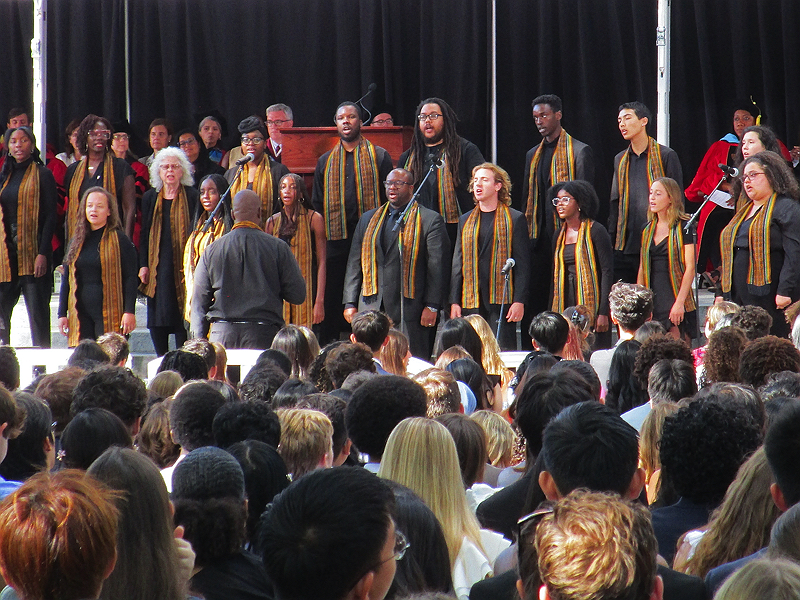
Some of the work necessary to equip contemporary students for their Harvard education has long proceeded in the background. The College and individual faculty members have worked to foster “intellectual vitality” among undergraduates. The campus controversies during the 2023-2024 year prompted higher-profile efforts, including University and FAS working groups on civil discourse and speech.
But even as these have gotten underway, the College has intensified its efforts to enhance the class of 2028’s skills and improve classroom experiences, as the undergraduates and their teachers approach a fraught new year. Among the most prominent initiatives:
•As part of their pre-orientation, all first-year students took an online learning program devised by the Constructive Dialogue Institute, aimed at equipping learners with the intellectual and emotional temperament to engage in fruitful, mutually beneficial exchanges. (Inside Higher Education has reported on other schools using this CDI “Perspectives” program, and adopting other measures, to foster civility and discourse on their campuses this fall.)
•For the required Expository Writing course, a pedagogical expert was retained to help design assignments and discussions to produce much more substantive class critiques. Those discussions are now intended to go beyond students’ skills in exposition to their underlying use of evidence and arguments. Half of the Expos preceptors have gone through the program, so there will be a natural experiment comparing the results of sections pursuing this kind of engaged conversation with those following the prior model.
•And the Bok Center for Teaching and Learning is working with faculty members leading General Education courses to incorporate techniques for more productive discourse, or to enhance those that already exist.
• • • • •
In his Gazette interview, President Garber merely sketched the challenges he and others see, noting, “It is incumbent upon us to set norms and to foster a culture of curiosity and inquiry in which the discovery and dissemination of truth thrive.” He was not deceived about the magnitude of the challenge: “Knowing that such fundamental changes take time adds to the urgency of our task.”
That work began some years ago, intensified significantly during the past 10 months, and became part of the class of 2028’s introduction to Crimson citizenship in recent weeks. Tapping into class members’ enthusiasm and energies, welcoming them to the community, but leaving little room for misunderstanding what is at stake were all a part of the formal convocation proceedings that ended orientation and set the stage for the new academic year—their first—that begins tomorrow.
Read a report on President Garber’s September 3 Morning Prayers remarks in Memorial Church here..
